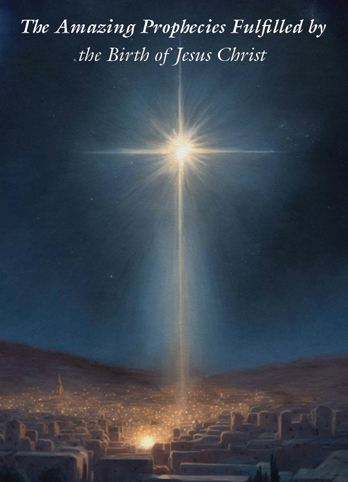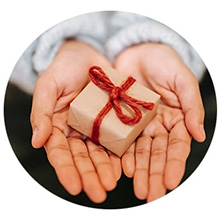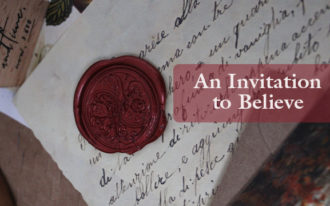Back to series



Little Bethlehem, Birthplace of the Messiah
December 25
View the Full Advent Calendar
Music Coming Soon…
Old Testament Prophecy:
“But you, O Bethlehem Ephrathah, who are too little to be among the clans of Judah, from you shall come forth for me one who is to be ruler in Israel, whose coming forth is from of old, from ancient days.”
– Micah 5:2
(Micah wrote this between 735 and 700 BC)
New Testament Fulfillment:
“Now after Jesus was born in Bethlehem of Judea in the days of Herod the king, behold, wise men from the east came to Jerusalem.”
– Matthew 2:1
(Matthew wrote this before 70 AD)
“And Joseph also went up from Galilee, from the town of Nazareth, to Judea, to the city of David, which is called Bethlehem, because he was of the house and lineage of David, to be registered with Mary, his betrothed, who was with child. And while they were there, the time came for her to give birth.”
– Luke 2:4–6
(Luke wrote this around 60 AD)
“Has not the Scripture said that the Christ comes from the offspring of David, and comes from Bethlehem, the village where David was?”
– John 7:42
(John wrote this before 70 AD)

Devotional by Lynne Marie Kohm.
Image: The Church of the Nativity in Bethlehem was commissioned by Emperor Constantine in 325–326 on the site that was traditionally considered to be the birthplace of Jesus.
During the time of Christ, there were two Bethlehems in Israel: Bethlehem of Galilee and Bethlehem of Judea. The prophet Micah and the gospel writers were each keen on specifying the precise birthplace of the Messiah. Bethlehem Ephrathah is located in Judea, near Jerusalem. It was the ancestral home of David. Bethlehem’s meaning is “place of bread” or “house of bread.” But it can also mean “house of war.” Beth means “house,” and laham means “to war” and is also identical to laham, which means “to eat, to use food.” The root word lehem means “food, bread, grain, making Bethlehem the House of Bread, or the House of Battle. These translations appear to suggest that the act of military conquest and the act of eating are closely related somehow.
House—bethel or bayit—denoted the realm of authority of the house-father, he who was the living alpha of the household. But this term could also mean a founding ancestor, or founding deity, making the house a temple. All of these meanings add to the depth of our understanding not just of Jesus’ birthplace, but of Jesus Himself. He is both our bread, and the authority in our
battle.
My home in Virginia Beach is themed after C.S. Lewis’s The Chronicles of Narnia. We have lions (or Aslans) everywhere, reminding us of the omnipresence of God. But we also have reminders of warfare—shields of armor, spears of battle, headpieces, and helmets—all to offer protection in the inevitable spiritual battle, the real warfare of life. These things remind us of the reality that life in Christ entails spiritual warfare.
This morning your place of bread is where your Christmas tree stands, where your children run to open their presents, where you will welcome family to take bread together. And it is simultaneously also your house of battle, where you and your family will choose this day whom you serve. It’s not just presents today. It is Him, the Bread of Life, the authority in the battle. As for me and my house, we will serve the Lord. May you also.
Prayer
Lord Jesus, be at home in my house and in my heart.
Bread of Life, may
I find nourishment in You.
May I delight to serve You this day and in
the year ahead.
Amen.

Lynne Marie Kohm
Professor Lynne Marie Kohm serves as the John Brown McCarty Professor of Family Law at Regent University School of Law. She is the author of the books Estate Planning Success for Women and The Christian Guide to Wills, Living Trusts and Estate Planning. Her professional affiliations include and have included the Virginia State Bar Family Law Section Board of Governors, Virginia Bar Association Domestic Relations Council, Christian Legal Society, American Bar Association, Eagle Forum, Alliance Defense Fund, Concerned Women for America, and Bethany Christian Services. She and her husband have two children.




